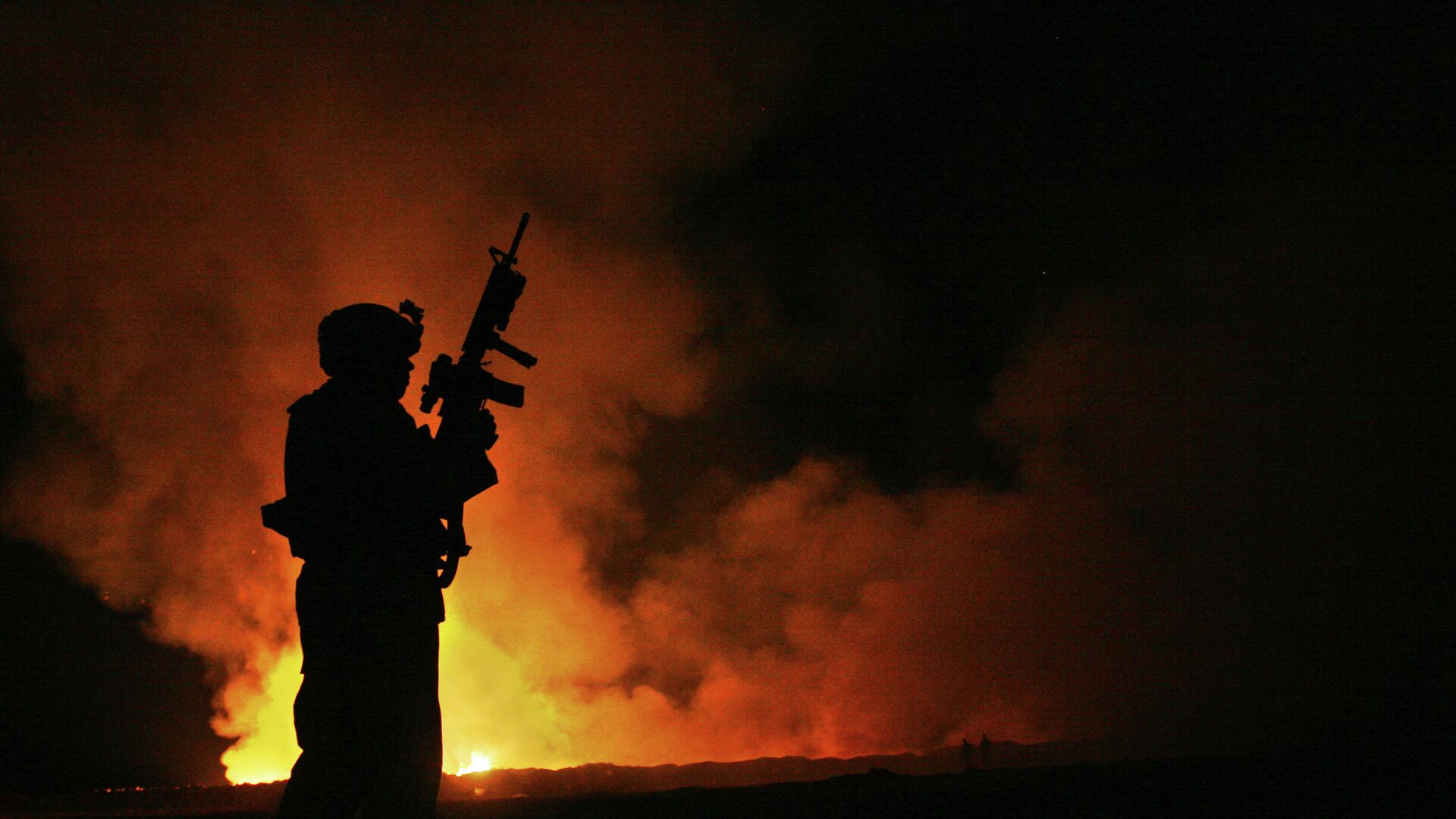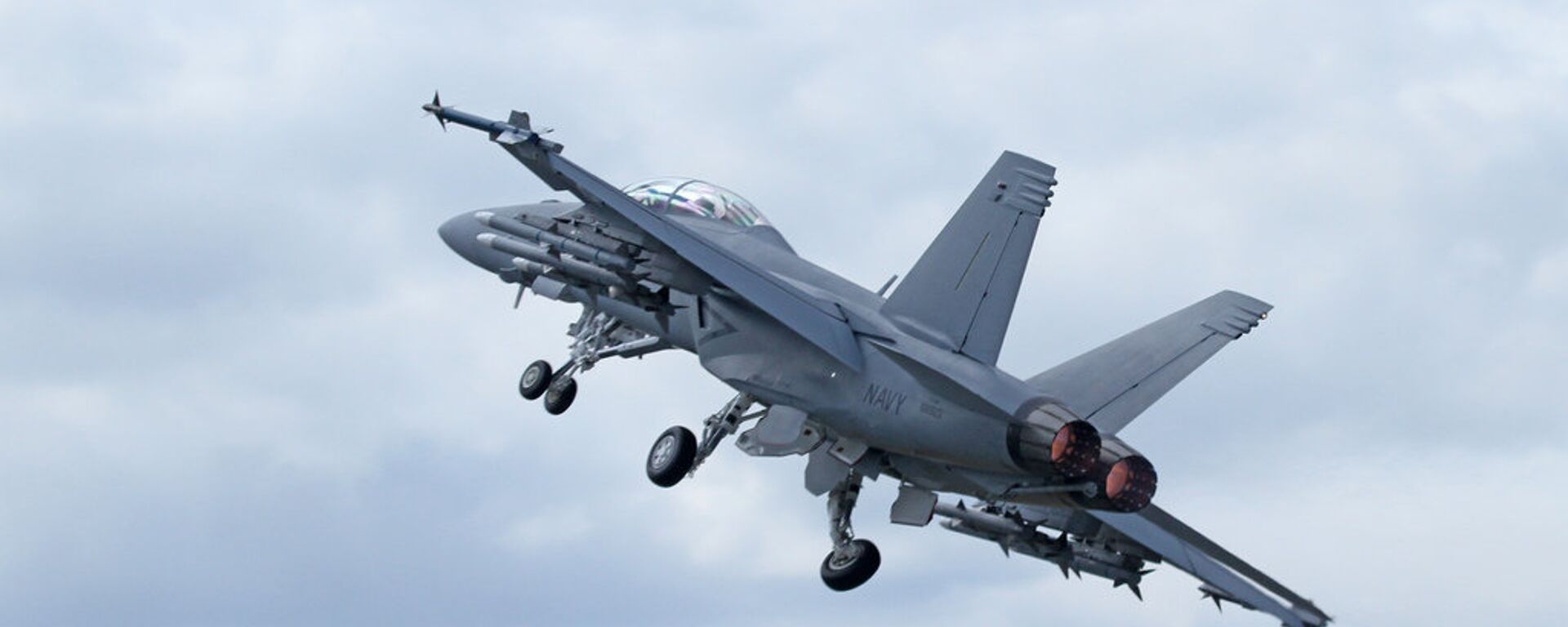Attacks on Yemen Put US on 'Very Slippery Slope' to War

© USMC/Cpl. Samuel Corum
Subscribe
The United States and Britain made headlines today by carrying out a series of air and missile strikes against Sanaa, ostensibly in retaliation for the Houthi attacks on Israeli-linked cargo ships that the Yemeni movement conducts in response to Israel’s campaign in the Gaza Strip.
It remains to be seen what the long-term results of the US and UK attack on Yemen will be, but they are unlikely to include de-escalation. The Houthis have vowed to continue attacking Israeli-related ships and branded all US military assets in the region as legitimate targets for reprisals.
According to former Pentagon senior security policy analyst Michael Maloof, the United States now finds itself on a “very slippery slope," and the country “could slip into war.”
“[The] Biden administration has been derelict in its visibility, if you will, in recent weeks. And as a consequence, it needs to give the appearance of being strong again" as it is "an election year,” he explained while discussing with Sputnik how the attack on Yemen is related to the US internal politics. “That's all the more important that people need to have the image of a strong chief executive. And Biden has been everything but that.”
The problem, as Maloof explained, is that while the US attack was “meant to be defensive,” such acts of “self-defense sometimes can get carried away,” with the analyst recalling how defending a US destroyer against an alleged North Vietnamese attack in the Gulf of Tonkin kickstarted the Vietnam War decades ago.
Meanwhile, US President Joe Biden “has not displayed strong leadership” until now and “has not been in a position to show any leadership in terms of trying to bring this conflict to an end,” Maloof said. He also pointed out how the US, instead of halting “all of its exports of munitions” to Israel, essentially keeps “pouring more and more gasoline on the fire.”
“So as a consequence of being not only encouraged, Israel's feeling emboldened and now wants to go into southern Lebanon. So as long as the United States is providing this support, this is what we're going to be running into. And I think that people need to understand this and decide that we're not dealing with a very strong president,” he said.
Maloof also observed that the recent visit by US Secretary of State Antony Blinken to the Middle East was “useless” - Houthi attacks on the shipping lanes in the Red Sea continue unabated.
“So his effectiveness is pretty much down there near zero. And they only put up with him because he's a high US government official,” Maloof said, referring to Blinken and the leaders he met during said visit respectively.
“But beyond that, he's feckless, he's ineffective, and he's very timid and meek. He's not strong at all. And for that matter he's not doing anything that brings about or showing any ability to bring these sides together. And all he's doing is spending, wasting money traveling around doing nothing and he's totally useless.”
If the current trend continues, Maloof suggested, and the Israelis not only continue to bomb the Gaza Strip but also expand their war into Lebanon, it may actually unite the Sunnis and the Shia.
“For now the countries such as Saudi Arabia, UAE, who are Sunni, really want to tamp down everything because they have other agendas, and war is not it. And the Saudis have been working very hard to bring to a conclusion the war with Yemen,” he said. “If there will be pressure brought to bear even on those countries eventually, if the Israelis expand and they've talked about wanting to go ahead and bomb even Iran, too. So as long as the United States gives them that ability it's not going to end very well.”
As for the legitimacy of the attack on Yemen, Maloof argued that it is “allowed” from an international law standpoint, seeing how cargo vessels in the Red Sea “were being targeted by Houthis,” but things become a lot less simple when it comes to US legislation.
“However, we also have what is called the War Powers Act passed by Congress a number of years ago. It allows for the United States to respond in a measured retaliatory fashion if US assets in the forces are attacked. But it has to be reported to Congress ultimately if it persists and this escalates, then Congress has to approve,” he explained.




